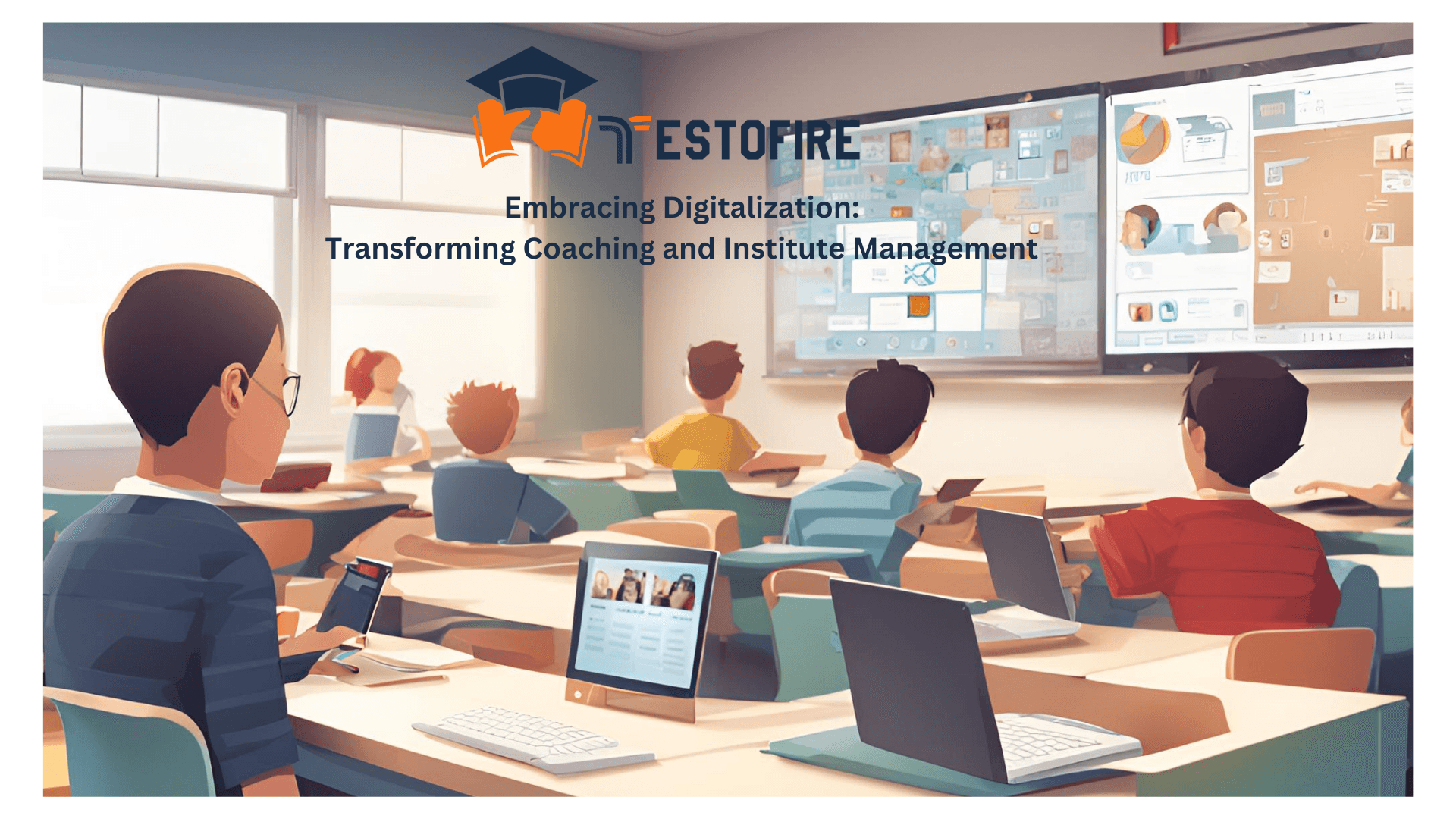Embracing Digitalization: Transforming Coaching and Institute Management

Published at: Wed May 01 2024
Author : Ritesh Singh
In today's rapidly evolving educational landscape, digitalization has become more than just a technological trend; it is a vital strategy for the survival and growth of coaching institutes and educational organizations. The transition from traditional methods to digital platforms is transforming the way institutions operate, teach, and interact with students. This blog explores the importance of digitalization in coaching and institute management, highlighting its impact on efficiency, accessibility, and educational outcomes.
Enhanced Efficiency and Organization
Digitalization streamlines administrative processes, making institute management more efficient and less prone to human error. Tools like Learning Management Systems (LMS), student information systems, and digital attendance trackers reduce the time and effort required for administrative tasks. This automation allows staff to focus more on teaching and less on paperwork, ultimately enhancing the overall productivity of the institution.
For instance, an LMS can manage course content, track student progress, and facilitate communication between educators and learners. This integration of various functions into a single platform eliminates redundancy and improves the flow of information, making management smoother and more effective.
Improved Accessibility and Flexibility
One of the most significant advantages of digitalization is the increased accessibility it offers. Students can access learning materials anytime and from anywhere, which is crucial in a world where education must adapt to diverse needs and unpredictable challenges, such as those posed by global pandemics. Digital tools also provide the flexibility for instructors to tailor their teaching methods to accommodate different learning styles and paces, thereby enhancing student engagement and learning outcomes.
Furthermore, digital platforms can break geographical barriers, enabling institutes to reach a wider audience. This not only helps in scaling operations but also provides opportunities for students from remote areas to access quality education without relocating.
Data-Driven Decisions
Digitalization facilitates the collection and analysis of data on student performance and engagement. This data is invaluable for educators and institute managers as it provides insights that can drive better decision-making. By understanding trends and identifying areas where students struggle, institutions can implement targeted interventions to improve educational outcomes.
Moreover, this data can also help in customizing learning experiences and optimizing teaching strategies, thereby making education more effective and responsive to student needs.
Enhanced Student Engagement and Learning Outcomes
Digital tools can make learning more interactive and engaging through multimedia content, interactive simulations, and gamified learning modules. These resources can enhance understanding and retention of complex concepts, making learning more enjoyable and effective.
Additionally, digital platforms facilitate real-time feedback and communication, which is crucial for maintaining student engagement. They allow for timely support and feedback, helping students stay motivated and on track with their learning goals.
Cost-Effectiveness
While the initial investment in digital technology might be significant, the long-term savings are substantial. Digital tools reduce the need for physical materials, lower administrative costs, and can decrease the physical space required for educational operations. Over time, these savings can be substantial, making education more affordable and sustainable.
Conclusion
The importance of digitalization in coaching and institute management cannot be overstated. It not only enhances the efficiency, accessibility, and effectiveness of educational services but also ensures that institutions remain relevant in a digital-first world. As we look to the future, embracing digital tools and strategies will be key to delivering quality education and fostering an environment of continuous learning and improvement. Institutes that recognize and leverage the power of digitalization will be well-placed to thrive in this new era of education.
Join TestOFire, We are only free platform in india.